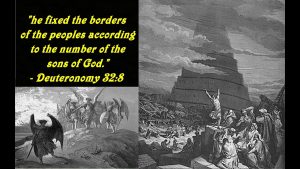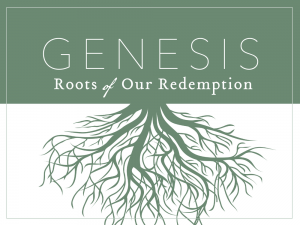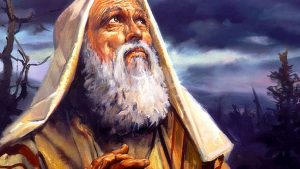
Shownotes
Wisdom-Trek / Creating a Legacy
Welcome to Day 1126 of our Wisdom-Trek, and thank you for joining me.
I am Guthrie Chamberlain, Your Guide to Wisdom
Rebellion #3 – Dividing of the Nations – Worldview Wednesday

Wisdom – the final frontier to true knowledge. Welcome to Wisdom-Trek where our mission is to create a legacy of wisdom, to seek out discernment and insights, and to boldly grow where few have chosen to grow before.
Hello, my friend, I am Guthrie Chamberlain, your captain on our journey to increase Wisdom and create a living legacy. Thank you for joining us today as we explore wisdom on our 2nd millennium of podcasts. This is Day 1126 of our trek, and it is Worldview Wednesday. Creating a Biblical worldview is important to have a proper perspective on today’s current events.
To establish a Biblical worldview, you must also have a proper understanding of God and His Word. On our Worldview Wednesday episodes we are in a series in which we are covering another detailed review of a book from one of today’s most prominent Hebrew Scholars Dr. Micheal S. Heiser. We are taking a deep dive and will share Dr. Heiser’s insights into the question which is also the title of his book “What Does God Want?”
Rebellion #3 – Dividing of the Nations

Last week we learned in Dr. Heiser’s book that parts of God’s supernatural family also chose to disobey His commands and did not stay in their limits of authority. They crossed over into the human family in a futile attempt to usurp God’s position.
Like the stories of Adam and Eve and Noah’s flood, you may have heard of the Tower of Babel. If not, that’s okay, because even most church-goers don’t realize what really happened there.
The story of the Tower of Babel is found in Genesis 11:1-9. After the flood God wanted Noah’s descendants to multiply and spread out over the earth. Like Adam and Eve, they were to be God’s co-workers to maintain creation. Instead of doing that, they gathered at a place called Babel and built a tower to their own glory Genesis 11:1-4.
That’s the familiar version of the story, but its real significance is found in two unfamiliar verses in another biblical book. The first is in Deuteronomy 32:8-9, and it reads:
When the Most High assigned lands to the nations,
when he divided up the human race,
he established the boundaries of the peoples
according to the number in his heavenly court.
“For the people of Israel belong to the Lord;
Jacob is his special possession.”
These two verses tell us that one of the judgments at the Tower of Babel was the division of humankind. Up until this point in the story, God was dealing with humanity as a collective whole. That changed at Babel. Human beings would be segregated by language and geography.
Even worse, God divorced himself from humanity. Fed up with human defiance of his will, God assigned the nations of the earth to other members of his supernatural family—the sons of God, or His heavenly court. These sons of God were a different group of his heavenly court than those who transgressed before the flood. God couldn’t kick humanity out of his house again; He had done that already back in Eden. He had promised through a covenant with Noah not to destroy humanity after the flood (Genesis [9:11]), so there would be no repeat of that disaster. So what else could he do? God essentially said, “Enough! If you don’t want me to be your God, I’ll assign you to some of my heavenly assistants.”
The fallout of this judgment took many forms. We aren’t told how long it took, but the Bible tells us that the supernatural sons of God assigned over the nations did a lousy job. Psalms 82:1-5 describes that these sons of God also became so corrupt that God had to judge them, too. Their judgment is described in Psalms 82:6-8 where God says that He would one day take away their immortality and take back the nations. For our purposes here, God’s frustration left him childless in terms of having a human family. He’d had it, but had He given up? Well…not quite.
· God’s Persistent Love
Guess what happened right after the Tower of Babel catastrophe? God appeared to Abraham (originally called Abram), an old man married to a woman (Sarah) who was beyond the age where she could have children. God made a covenant with Abraham. He promised the old man and his wife that they would have a son. God would do a miracle. Their son would be the beginning of a new family for God on earth (Genesis 12:1-9; 15:1-6; 18:1-15).
Having allotted humanity to the oversight of members of his heavenly host, God wanted to begin anew with a family of his own with Abraham. Abraham believed God’s promises as we are told in Genesis 15:6,“And Abram believed the Lord, and the Lord counted him as righteous because of his faith.” He didn’t have to earn God’s interest or favor. It was God who had chosen Abraham to start over with his human family. The relationship between God and Abraham started with God. Abraham believed.

Afterward, the covenant relationship that began with God’s call and Abraham’s faith was commemorated with the physical sign of circumcision (Genesis 17:1-14; Romans 4:1-12). Abraham’s entire family followed his example (Genesis [17:23]). Bearing this sign marked the descendants of Abraham as the people whom God wanted as his family. Circumcision would be a sign to the women of Abraham’s lineage, too. Since they were to marry only within the extended tribe, they would be reminded of how their people had been supernaturally created from Abraham and Sarah when they decided to have their own children.
It’s important to realize that God’s covenant with Abraham was based on the belief in God’s promises by faith. God didn’t approach Abraham because he’d found a man who was a good rule-keeper. Salvation is not based on behavior. We cannot earn our salvation. If that was the case, then God would be in our debt by virtue of our performance. He’d owe us something in response to our achievement. Think of how absurd that sounds. Rather, Abraham and his descendants showed their belief in God’s promises by observing the sign of the covenant. It was an outward way to show where their loyalty was.
The apostle Paul used Abraham as an example of believing loyalty (Romans 4:1-12). Abraham believed and was accepted by God before he obeyed any rules. The rules were about showing he believed. They did not replace belief. Belief (faith) was the one essential thing. Loyalty to that belief—to that God—is something we’ll talk about later. Today we call it discipleship.
Belief and loyalty are two distinct things. They are related but not interchangeable. The same is true of salvation and discipleship.
Promising Abraham a son, and through him, the start of a new family that would grow into a great nation, was God’s second covenant after the disaster of Eden. The first had been with Noah. Both were designed to preserve his dream of having a human family. But these covenants weren’t just about God not giving up. They were also about extending the offer of everlasting life to people. God had not given up on humanity. He couldn’t stop loving people. God still wanted a human family.
God kept his promise to Abraham. He and Sarah did indeed have a son, Isaac, (Genesis 17:19-21; 21:1-7). Abraham’s extended family would become known as “Israel,” the name most frequently used in the Old Testament for God’s human family (Genesis 32:28; Deuteronomy 32:9; Isaiah 44:1). But what about the people from the other nations, the ones God had assigned to the sons of God after the Tower of Babel rebellion? They are called “Gentiles” in the Bible, a short term that means “not from Israel.” And despite what happened at Babel, God did not forget about those people.

Not only would God start over yet again with a new people (Israel), but he told Abraham that his descendants would someday be a blessing to the other nations God had forsaken (Genesis 12:3)! Many years later, Jesus, who was from the family of Abraham, would be the particular descendant who would bring all the nations of the world back to God (Galatians 3:16-18, 26-29). Before Jesus arrived on the scene, Gentiles could join God’s family by choosing to reject all other gods, believing in Him, and taking the sign of God’s covenant.
A lot of time passed between the time of Abraham and Jesus. Israel’s own history as “the Lord’s portion” (Deuteronomy 32:9) wasn’t a pretty one. They were God’s people, but sadly, perhaps predictably, their loyalty failed. The darkest hour was yet to come.
That will conclude our lesson for this week from Dr. Heiser’s book “What Does God Want?” Next Worldview Wednesday we will discover that even after God had made a covenant with His special nation, He was betrayed by His family. I believe you will find each Worldview Wednesday an interesting topic to consider as we build our Biblical worldview.
Tomorrow we will continue with our 3-minute humor nugget that will provide you with a bit of cheer and help you to lighten up and live a rich and satisfying life. So encourage your friends and family to join us and then come along with us tomorrow for another day of our Wisdom-Trek, Creating a Legacy.

If you would like to listen to any of our past 1125 treks or read the Wisdom Journal, they are available at Wisdom-Trek.com. I encourage you to subscribe to Wisdom-Trek on your favorite podcast player so that each day’s trek will be downloaded automatically.
Thank you so much for allowing me to be your guide, mentor, and most of all your friend as I serve you through the Wisdom-Trek podcast and journal.
As we take this trek together, let us always:
- Live Abundantly (Fully)
- Love Unconditionally
- Listen Intentionally
- Learn Continuously
- Lend to others Generously
- Lead with Integrity
- Leave a Living Legacy Each Day
I am Guthrie Chamberlain reminding you to Keep Moving Forward, Enjoy Your Journey, and Create a Great Day Everyday! See you tomorrow!